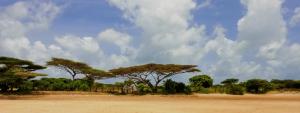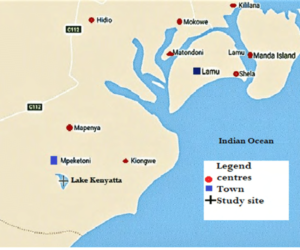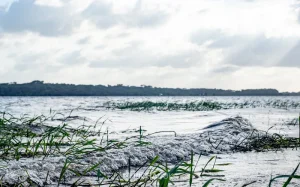
Grants
Land Regeneration and Restoration
Contributing Towards Sustainable Ecosystem in Lake Kenyatta
£7800 awarded
Project Length – 3 Months
Problem Statement
Lake Kenyatta is one of the few expansive freshwater sources in the coastal region and is the only freshwater lake in Lamu County. The area is rich in aquatic and terrestrial biodiversity and home to zebra, monkeys, buffalos, warthog, big cats, giraffes, waterbucks, and unique species of wild birds, hippopotamus, fish, and reptiles.
The area was settled in the 1970s as part of government plans to settle landless people from central Kenya. When the first settlers came Lake Kenyatta was 12 Kilometres in Length and is today less than 7 kilometres and shrinking by the day. This is in part thanks to human encroachment and increased irrigation.
Between 2016 and 2017 the lake completely dried up following a prolonged drought that resulted in massive destruction of ecosystems and wildlife. At the time, many organizations tried to find solutions to the challenges, but all were unsuccessful as they didn’t understand the root cause of the problem and lacked synergy and cooperation among the community.
Further challenges continue to this day including;
- Excessive and unsustainable farming practices
- Unsustainable fishing
- Land encroachment
- Conflict between stakeholders
- Tree cutting
- Overgrazing due to large numbers of pastoralists
- Invasive species
- Soil harvesting

Project Summary
The project is made up of community and stakeholders’ awareness and sensitization sessions. In these sessions, community members will be made aware of conservation techniques that could be used to protect the lake. Communities will then be encouraged and supported to create conservation projects that are influenced by their experiences on the ground.
Alongside the sensitisation, research will be undertaken to understand the root causes of the shrinking and drying up of Lake Kenyatta. This research will aid communities to come up with sustainable solutions to mitigate the threat
The project has community participation at its centre to encourage conservation champions and ownership over projects created. This is important as it will ensure the sustainability of the project and create passion among community members to be more active in protecting their environment.
This is the first phase of a longer-term project to protect Lake Kenyatta. The findings from the research and community input will guide the next stages of the project. LOYI with the help of LEF will be supporting community-led organizations to bring synergy among different organizations for the success of the project and long-term sustainable community conservation efforts.
Objectives
This project aims to tackle multiple issues faced around Lake Kenyatta including, protecting biodiversity, regenerating and restoring land and finally, preventing conflict and increasing synergy among stakeholders.

Specific Outcomes
The objectives of the research are;
- Collect data to understand the daily activities of the community around the lake
- Sensitize and create awareness among the members of the community living around the lake about the environmental impact of human activities on the biodiversity of the lake.
- To understand the potential solutions for protecting the lake.
- To create synergy between different community groups where conflict is often rife
- To design and create potential projects to mitigate the issues led by the community
- To have community buy-in on conservation efforts for increased longevity of conservation efforts and more sustainable protection
About the organisation
Lamu Outreach Youth Initiative (LOYI) is a youth-led, Community Based Organization, Non-Profit and Non-Governmental initiated in January 2020 based on the coast of Kenya to spearhead environmental protection and peacebuilding through transforming conflict.
To achieve sustainable peace and reconciliation, LOYI has been founded upon the principles of democracy, pluralism and just society. LOYI employs people-to-people approaches to build resilient communities through an intercultural exchange, promoting peace and enhancing interfaith cohesion. LOYI harnesses and develops the power of young people in environmental protection initiatives by increasing their skills as well as providing opportunities for constructive engagement among and between different groups of the society to discuss sensitive environmental issues and develop mutually agreed actions to address them.
LOYI has just concluded youth empowerment and skills project with Mercy corps, the 9 month project started in September 2021 to June 2022.
